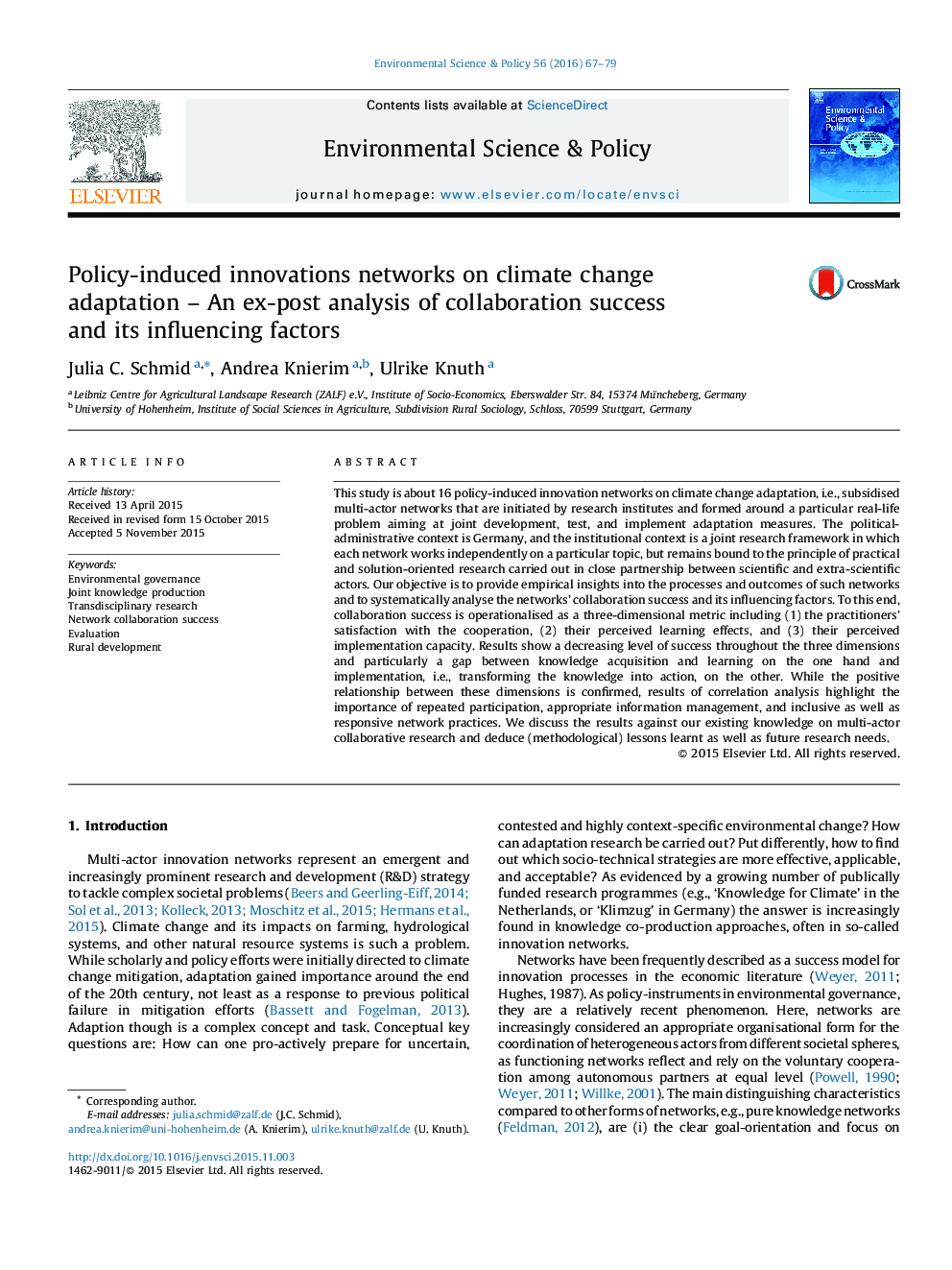| Article ID | Journal | Published Year | Pages | File Type |
|---|---|---|---|---|
| 7467103 | Environmental Science & Policy | 2016 | 13 Pages |
Abstract
This study is about 16 policy-induced innovation networks on climate change adaptation, i.e., subsidised multi-actor networks that are initiated by research institutes and formed around a particular real-life problem aiming at joint development, test, and implement adaptation measures. The political-administrative context is Germany, and the institutional context is a joint research framework in which each network works independently on a particular topic, but remains bound to the principle of practical and solution-oriented research carried out in close partnership between scientific and extra-scientific actors. Our objective is to provide empirical insights into the processes and outcomes of such networks and to systematically analyse the networks' collaboration success and its influencing factors. To this end, collaboration success is operationalised as a three-dimensional metric including (1) the practitioners' satisfaction with the cooperation, (2) their perceived learning effects, and (3) their perceived implementation capacity. Results show a decreasing level of success throughout the three dimensions and particularly a gap between knowledge acquisition and learning on the one hand and implementation, i.e., transforming the knowledge into action, on the other. While the positive relationship between these dimensions is confirmed, results of correlation analysis highlight the importance of repeated participation, appropriate information management, and inclusive as well as responsive network practices. We discuss the results against our existing knowledge on multi-actor collaborative research and deduce (methodological) lessons learnt as well as future research needs.
Keywords
Related Topics
Physical Sciences and Engineering
Energy
Renewable Energy, Sustainability and the Environment
Authors
Julia C. Schmid, Andrea Knierim, Ulrike Knuth,
